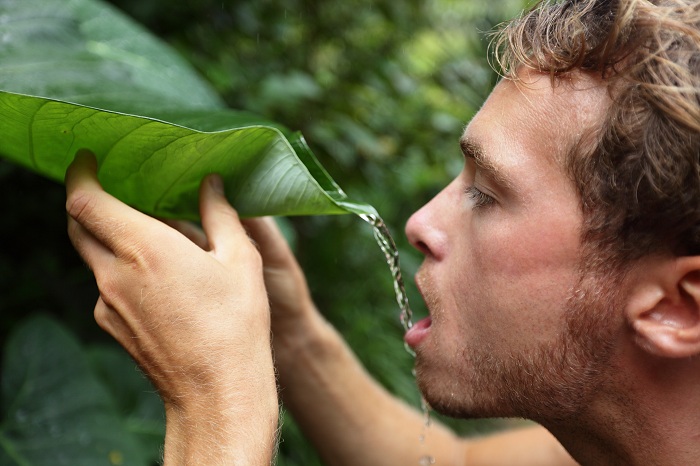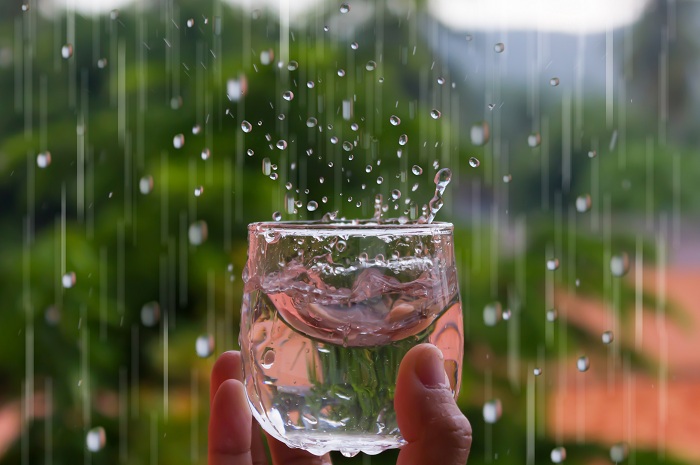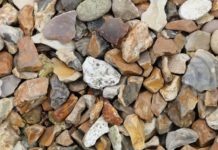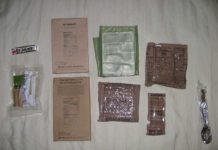Camping and hiking in the wilderness is a passion for many of us. It gives us the opportunity to relax and break away from the crazy life and rush of the city. However, occasionally you might run out of drinking water and this could leave you vulnerable to fall into the temptation of trying any water you might come across.
Can you drink rainwater is one of the questions we have found a lot from some of the newcomers and beginners in the outdoor industry.
While this question might seem straightforward, once you know a little more about rainwater and when you can drink it, you will be able to have a safer experience and fill up all of your water bottles in time for your hike the next day.
When Should You Not Drink Rain Water?
The common misconception is that all rainwater is safe to drink, but unfortunately, this is not the case. Since the rain has to pass through the immediate atmosphere of an area before eventually falling to the ground, you might find yourself dealing with a couple of contaminants that could potentially make the water more harmful than good.
When hiking or trekking, you will need to find out if the area has any radioactive residue that might cause some harm to your body. Radioactive areas like Chernobyl will pollute the water making it poisonous and this could even cause death.
Another thing to be careful of is major factories near industrial areas as the rain can be turned into acid and this could also cause more damage to your body and even death.
Pros And Cons Of Drinking Rain Water

Drinking rainwater does have its benefits, but it can also be frowned upon by some of the more avid hikers and outdoor enthusiasts. Since it can be hard to determine the quality of the air and chemicals that might be present, it is highly advised that you stick to taking your own clean water. However, here are a couple of pros and cons when it comes to drinking rainwater:
1. Benefits of drinking rain water
- It can be an endless supply: In many subtropical areas, you will find a constant barrage of rain and this could mean an endless supply of fresh water if you capture it correctly.
- Your weight is reduced: Backpacking longer distances can be quite a tiring experience and this is enhanced when you carry a heavy load. By relying on rainwater, you could reduce this weight significantly.
- It is safe to drink (most of the time): Rainwater is much better than relying on still water found in nature. Chances are that the water is safe to drink even when drinking it off some leaves.
- It is free: While this one might not be as important to hikers, it still counts for something if you have a water shortage. Rainwater is free and can be used as much as you need it.
2. Drawbacks of drinking rain water
- Polluted rainwater can be deadly: Drinking polluted rainwater can actually be deadly in and though itself. While the water might not directly kill you unless it has been contaminated with radiation, it could cause severe dehydration.
- It can be hard to capture the water: Without the right skills, capturing rainwater can be quite tricky and if you do not have these skills, you might need to endure a trip without water to keep you going.
How To Make Rain Water Safe To Drink
Fortunately, it is possible to make rainwater safer to drink and it will also be best if you do use these methods in any case to ensure that the water is safe and ready to drink. Generally, there are 2 things you need to keep in mind and this is boiling the water and filtering it.
- Boiling: Boiling the rainwater will kill off all of the pathogens in the water and this could also help kill additional bacteria that might cause dehydration in the long term. You will never be able to see this bacterium in the water, but it will be best not to take chances and to boil it anyway for your own safety.
- Filtering: Using a simple home filtration device, you could easily filter the rainwater. This might not kill off any of the bacteria, but it will certainly remove some of the pollen and dust that could cause a nasty taste. However, by filtering the water before boiling it, you will be able to have cleaner and safer water that also tastes better.
Is Rain Water Safe To Drink
The short answer is: sometimes. Rainwater is responsible for most of the drinking water around the world. It is generally caught in rivers and lakes and then cleaned to make it safe for drinking.
In most cases, rainwater will be safe to drink if you have scouted the area. However, it is still advised that you do clean the water and take some of the necessary precautions to ensure you are safe.
One additional tip that you could use for rainwater in the wilderness is to catch is on leave and use this to fill up your water bottle. It might take some time to do this, but the leave, if not poisonous, will also remove some of the toxins from the water and this could be your ticket to drinking rainwater if you are stranded in the wild.
With this guide, not only do I want to answer the question “can you drink rainwater” but I also want to give you a better understanding of rainwater and some of the ins and outs of drinking it. Hopefully, this will come in handy for your next camping or hiking trips in the near future.










